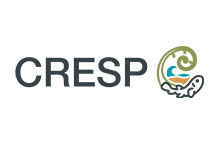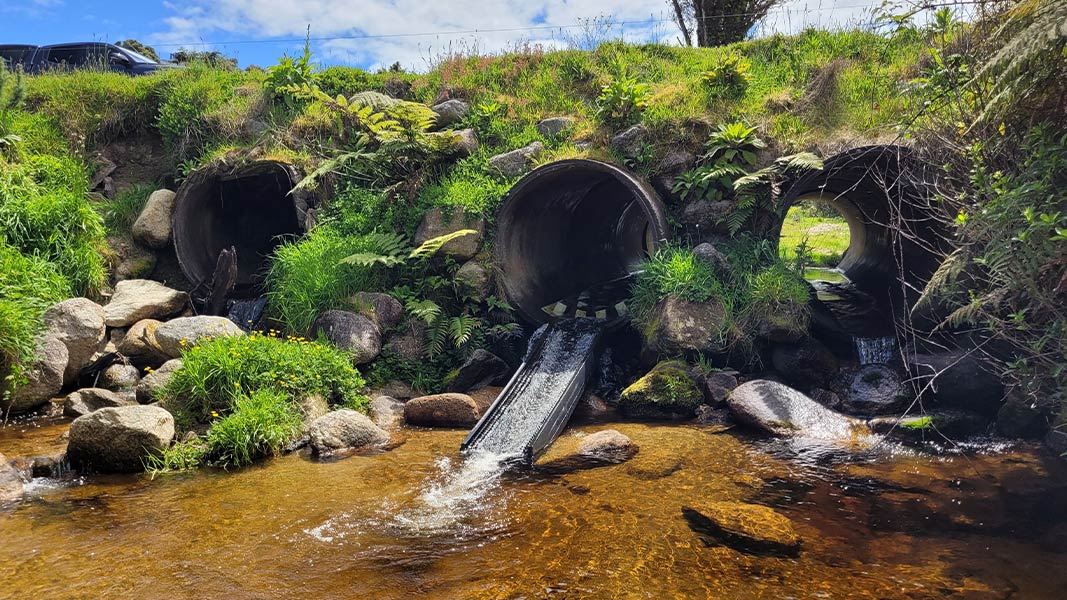Pressures on New Zealand freshwater ecosystems

Pressures on New Zealand’s freshwater ecosystems have had significant consequences for our freshwater species.
However, we have incomplete knowledge of how these pressures are affecting our freshwater ecosystems and their associated biodiversity and cultural values. This limits our ability to effectively advocate for and manage our freshwater systems.
The four key pressures CRESP is addressing are:
Water levels and flows
This includes any alteration to natural river flow regimes, such as changes in seasonal patterns of flow and water levels in rivers, lakes and wetlands. The primary pressures that influence water levels and flows include water abstraction, diversion, augmentation and drainage.
Critical habitat loss
This includes the total loss of habitat, habitat deterioration and habitat modification in rivers, lakes and wetlands through activities such as piping and draining streams and wetlands, removing aquatic plants, and channelisation.
Sediment and nutrients
This includes the effects of deposited and suspended sediment on freshwater ecosystems and species, and the direct and indirect effects of nutrient enrichment, focussing specifically on nitrogen and phosphorus.
Fish passage
This includes the effects of instream structures that alter freshwater habitats or block fish movements upstream and/or downstream. It encompasses the removal and modification of barriers, as well as the installation of barriers to protect native species. For other guidance and resources on how to improve fish passage see Fish passage management in New Zealand.
Research programme objectives
The CRESP research programme began in 2019. It has three key objectives.
- To deliver research that produces new evidence and data on the ecological responses of freshwater systems to changes in critical ecosystem pressures
- To contribute knowledge to improving freshwater advocacy and management in New Zealand.
- To work in partnership with Māori and regional, national and international organisations.
CRESP four-year research strategy
This research strategy has been developed to provide strategic direction and inform annual investment priorities for research under DOC’s CRESP programme for 2020–2023.
CRESP 4-year research strategy (PDF, 2,029K)
A collaborative approach
Through the CRESP research programme, DOC is keen to work in partnership with Māori and regional, national and international organisations to collectively build evidence that supports ecologically sustainable approaches to managing the effects of land and water use on freshwater biodiversity.
Collaborative research will particularly be sought with iwi and hapū, councils, CRIs, universities, and other research agencies. This includes partnerships with Ministry of Business, Innovation and Employment (MBIE)-funded freshwater research programmes and National Science Challenges. Opportunities for supporting postgraduate and postdoctoral study will also be targeted.
Research project summaries
- A baffling solution: testing the effectiveness of baffles and fish ramps in facilitating native fish migration through culverts
- Trout hinder population recovery of galaxiids after extreme flood events (PDF, 396K)
- Trout influences on non-migratory galaxiids under natural and reduced flow conditions (PDF, 1,349K)
- Nitrate exposure does not compromise growth, metabolism or heat tolerance in upland bully (PDF, 466K)
- Novel method of gravel extraction offers restoration potential (PDF, 620K)
- Repeated fine sediment pulses may impact stream restoration projects (PDF, 640K)
Reports
- Toward national guidance for fish screen facilities to ensure safe passage for freshwater fishes
- Minimum drain setback distances to protect NZ wetlands: tool development (6,547K)
Habitat descriptions:
- Habitat description of southern flathead galaxias (PDF, 3,048K)
- Habitat description of Teviot flathead galaxias (PDF, 2,769K)
- Habitat description of Nevis galaxias (PDF, 3,340K)
- Habitat description of alpine galaxias (Southland) (PDF, 2,525K)
- Habitat description of alpine galaxias (Manuherikia River) (PDF, 3,464K)
Flow habitat preference:
- Flow habitat preference of Teviot flathead galaxias (PDF, 437K)
- Flow habitat preference of Nevis galaxias (PDF, 410K)
- Flow habitat preference of alpine galaxias (Manuherikia River) (PDF, 418K)
- Flow habitat preference of alpine galaxias (Southland) (PDF, 418K)
- Flow habitat preference of southern flathead galaxias (PDF, 448K)
Research publications
- Davis et al. (2021) Long-term variability in deposited fine sediment and macroinvertebrate communities across different land-use intensities in a regional set of New Zealand rivers
- Lee et al. (2023) Spatiotemporal patterns of research on Southern Hemisphere amphidromous galaxiids: A semi–quantitative review
- Davis et al. (2024) Monthly sampling reveals seasonal fine sediment fluctuations and riverine invertebrate community responses
- Jolly et al. (2024) Isolation management to protect threatened native galaxiid fish species: Lessons from Aotearoa New Zealand
Contact
If you have any questions or want to collaborate or fund a project, email us: nboddy@doc.govt.nz
